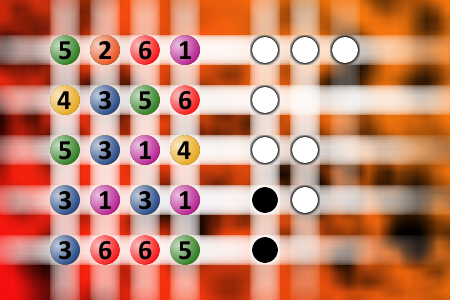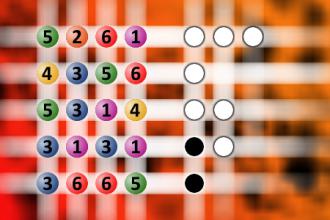Find the right combination
The computer chose a secret code (sequence of 4 digits from 1 to 6). Your goal is to find that code. Black circles indicate the number of hits on the right spot. White circles indicate the number of hits on the wrong spot.Correct answers: 31
The first user who solved this task is Djordje Timotijevic.
#brainteasers #mastermind

Dead Lawyer
A guy calls a law office and says: "I want to talk to my lawyer."
The receptionist replies, "I'm sorry, but he died last week."
The next day he phones again and asks the same question. The receptionist replies, "I told you yesterday, he died last week."
The next day the guy calls again and asks to speak to his lawyer. By this time the receptionist is getting a little annoyed and says, "I keep telling you, your lawyer died last week. Why do you keep calling?"
The guy says, "Because I just love hearing it."

